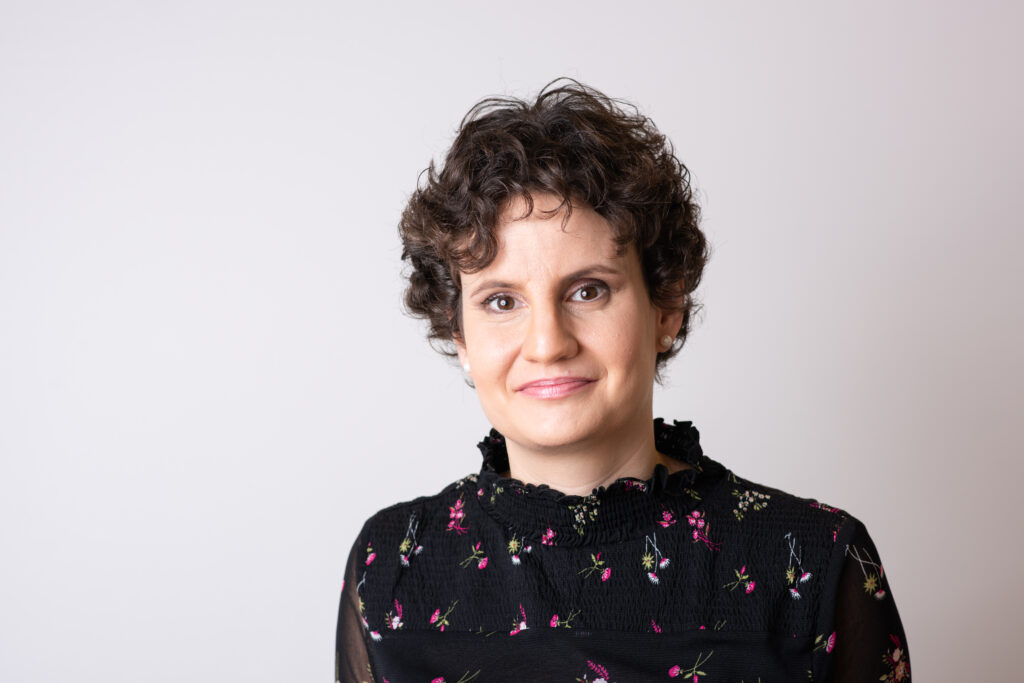Dr. Astrid Weiss

Astrid Weiss is senior scientist in Human-Computer Interaction at the Institute of Visual Computing and Human-Centered Technology, TU Wien (Austria). She is a trained social scientist with extensive work experience in interdisciplinary settings studying Human-Robot Interaction. She particularly focuses on user involvement in conceptualizing, building, and evaluating robots in different social contexts. Her work has explored robot applications in the home, in healthcare, and in factory settings. Weiss is considered as one of Austria’s key figures in the interdisciplinary research field of Human-Robot Interaction (HRI), as evidenced by numerous articles, lectures, and conference organizations. In 2017, she gave an invited talk at Tedx TU Wien entitled: “Will care robots care”? From 2022 onward, she will collaborate on a 5-years transdisciplinary project “Caring Robots // Robotic Care”, funded by the Austrian Science Fund (FWF).
Caring Robots // Robotic Care – Will we ever have robotic carers?
Robotic and artificial intelligence based technologies are often referred to be key to tackle the looming care crisis for the elderly resulting from demographic changes. In practice, however, these technologies have not had the desired impact in the care sector – utility and acceptance have been low. In recent years, more and more research on care technologies strives to integrate stakeholders in the development of robotic solutions to mitigate this effect. In this talk I will share my experience from the EU project Hobbit: I will reflect how the robot narrative (impacted by science fiction, the term robot itself, and assumptions on human-like intelligence) together with aspects of power balancing stakeholders, and the adaptivity of the robot, pose specific challenges for participatory design processes in HRI. I will conclude with thoughts on a way forward for the HRI community in developing a culture of participation that considers humans when conceptualizing, building, and evaluating robots in the care context.
Prof. Mark Neerincx

Mark Neerincx is full professor Human-Centered Computing at the Delft University of Technology and principal scientist at TNO Human-Machine Teaming. He has initiated and led a large number of national and international research programs and projects on the human-centered development of intelligent technology. A central theme is the integration of stakeholders’ values and needs into the design of electronic partners (ePartners) that provide long-term social, cognitive and affective support for individual’s performance, resilience, health and/or wellbeing. In the healthcare domain, for example, research focuses on robotic and virtual ePartners that (1) help patients to cope with their chronic disease (e.g., diabetics) in different self-managements activities, (2) assist older adults with dementia and care givers to establish positive experiences of life in the care centers, and (3) support preventive or therapeutic activities for persons with a (risk to develop) a post-traumatic disorder.
Social robots that stimulate and harmonize people with dementia’s engagement into daily activities
Due to the loss of cognitive and behavioral abilities, people with dementia (PwD) become more dependent on their (in)formal carers and may stop engaging in meaningful activities. Carers often feel burdened when they cannot provide enduring support to engage the PwD in such activities. An adjustable combination of Social AI (SAI) technology could help to initiate, coordinate, guide, stimulate and personalize the activities of PwD. Key component is a virtual and/or physical conversational agent that guides individual and group activities, asks questions, tells stories with multi-media illustrations, informs the PwD about (coming) appointments, and notifies the carer about an emerging support need. As music has a high potential to stimulate beneficial social, cognitive and affective processes, a personalized and contextualized music service is being integrated into the SAI system. In this presentation, I will present the socio-cognitive engineering method that is used to research and develop (R&D) this system in an iterative, incremental and participatory way. Examples of music-enriched activity support will be provided and, briefly, the R&D challenges that will be taken in the near future.